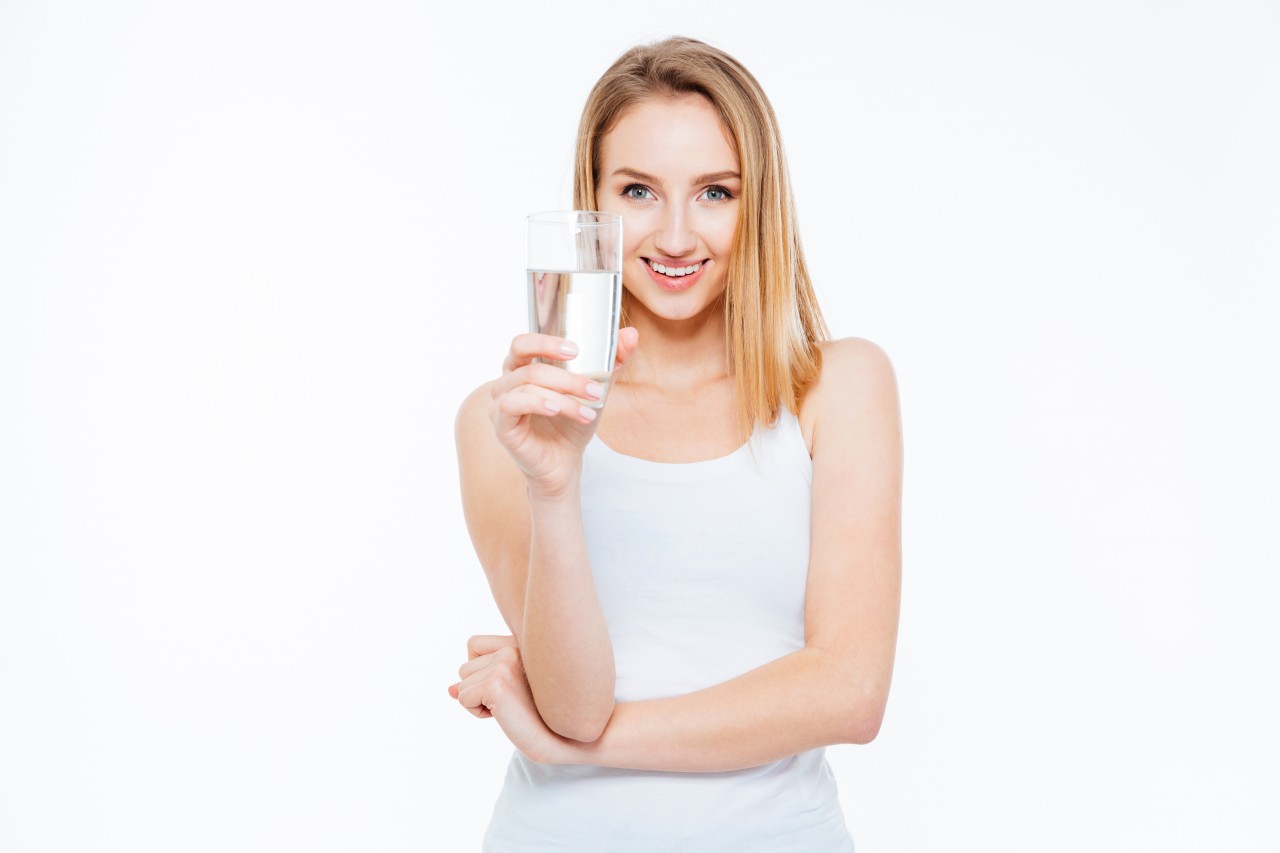
As summer approaches and the temperatures begin to soar, ensuring that you’re well hydrated becomes even more important. Dehydration can impact a number of things, including your fertility, mood and concentration, so knowing how much water you need to be drinking can help to keep your wellbeing in check. So what is dehydration, what are the signs and how does dehydration affect you and your health?
Our bodies are continually losing water, whether it’s through breathing, sweating or our regular visits to the loo! Water levels in our body can become an issue if we don’t match our fluid intake to the amount we’re losing, which leads to dehydration.
In addition, water loss or dehydration can be worsened by hot weather conditions, exercise or sickness, typically from vomiting and diarrhoea. This isn’t a reason to prevent you from enjoying warm weather or getting your body moving, but you should take care to stay adequately hydrated.
Dehydration can vary from being mild up to severe (which is quite rare!), so making sure you drink enough water is really important. Common symptoms of dehydration to look out for can include light-headedness or dizziness, headaches, having a dry mouth, palpitations, increased thirst and passing dark urine.
Concentration
Dehydration can have an effect on your concentration. Dehydration caused by exercise or hot conditions has been shown to negatively affect our short-term memory, so if you’re guilty of arriving at the supermarket, then forgetting what you came for perhaps you’d be better buying a bottle of water?! Inadequate fluid intake can also impact visuo-motor skills such as your hand-eye coordination, so staying well hydrated can give you that competitive edge when playing your Saturday game of tennis!
Bowels
Fluid loss can also affect your bowel movements. Dehydration can lead or contribute to constipation, so it’s in your best interest to drink plenty of water to help keep things moving! If you suffer from irritable bowel syndrome (IBS) or inflammatory bowel disease (IBD) diarrhoea is often a symptom, so it’s even more important to drink sufficient amounts in order to maintain good levels of hydration.
Fertility
There’s some suggestion that hydration levels can even affect our fertility, in females and males! Dehydration may lead to reduced cervical mucus, which sperm travel through in the fallopian tubes. This impacts the likelihood of fertilisation as ideal environmental conditions are decreased. It is believed that dehydration in men can lead to reduced quality and production of semen, including sperm count, so it’s important that both partners are well hydrated.
So you can see that staying hydrated is really crucial to keep your health in check and keep you functioning on a daily basis. Current figures suggest having around 6-8 daily glasses of water or other fluids such as tea, coffee (in moderate amounts) and milk, is adequate for most people. We also get fluid from fruit and veggies, so if your intake is low, this may also impact your hydration levels.
As a rough guide, your pee should be a straw yellow/pale yellow colour if you are having enough water in your diet.
Ultimately, the amount of water you need to drink will vary based on age, gender, activity levels and weather. If you’re big (tall or wide) you will generally need to drink more fluid and if you’re out in hot weather or doing strenuous exercise you’ll also need to up your water intake. If you are pregnant or breastfeeding, you will need an additional 750-1000mL (3-4 cups) more usual.
Keeping a bottle of water handy at your work desk, when you go out and nearby when you are playing sports can be a big help.

Get nutritious recipes
straight into your inbox!
Send your details now to receive Melanie’s recipes designed around a range of dietary needs including improved fertility, weight loss, general heath and wellbeing through improved nutrition. Receive the recipes specific to your needs.
As seen in






